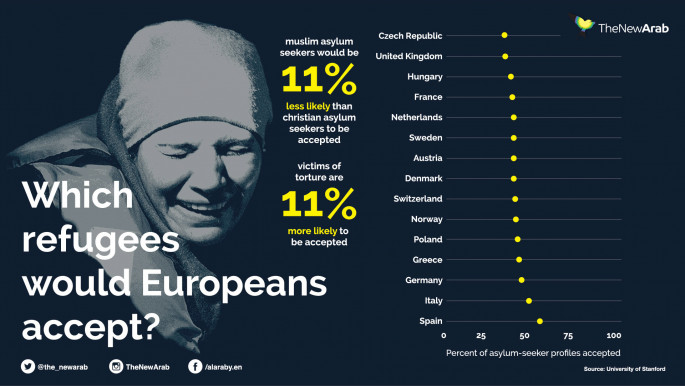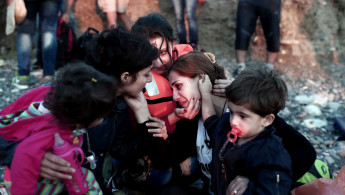The acceptable face of European immigration
The research, published in Science found that respondents were more likely to grant asylum to Christians with greater employment prospects and usually prioritised those who had been tortured.
"We [found] that religion matters," the report reads. "Muslim asylum seekers are about 11 percentage points less likely to be accepted than otherwise similar Christian asylum seekers."
Researchers showed a variety of asylum applications to 18,000 people from fifteen different countries across Europe and asked which ones they would grant asylum to.
The research, led by Jens Hainmueller, a professor of political science at Stanford University, showed a clear "anti-Muslim bias" and illustrated that respondents were more likely to prioritise those that had suffered torture in their home countries.
Refugees from Syria and Ukraine were most likely to be accepted, followed by refugees from Afghanistan, Iraq, Pakistan, and Eritrea. Refugees from Kosovo were the least likely to be granted asylum.
However, the study also found that applications were more eleven percentage points less likely to be accepted if the application’s information was inconsistent.
The results showed a clear positive bias towards migrants with relevant job skills. Doctors were 13 percentage points more likely to be approved than the unemployed, while teachers and accountants were nine and eight percentage points more likely, respectively.
The survey results also helped illustrate the national factors that helped influence a decision, including the number of applications made to a country and "the generosity of that country's welfare state".
The survey was conducted in order to help show the cultural factors that affect asylum application decisions in Europe during the continents worst refugee crisis since the Second World War.
The research authors said they found there had been plenty of research in recent months on public attitudes towards immigrants and Muslims, but that their research was the first to focus on anti–asylum seeker attitudes.



